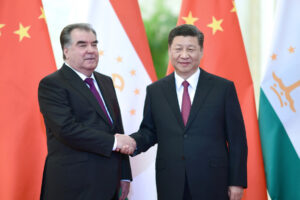President Hage Geingob estimates that green industrialisation could generate 600 000 direct, indirect, and induced job opportunities in Namibia by 2040.
According to the president, this could double the size of the existing formally employed labour force.
This statement should be placed in context.
Firstly, the president is speaking about almost two decades from now when another generation would have been sacrificed because of the unemployment crisis.
Secondly, to depend on the private sector for green industrialisation is a mistake as it will never lead to meaningful employment.
It is a sector driven by profit instead of the best interests of all citizens.
If the president is committed to job creation, we must rather reconfigure the neoliberal Namibian state to address our social crisis.
THE THEORY
Full employment is possible.
In their book ‘Reclaiming the State – A Progressive Vision of Sovereignty for a Post-Neoliberal World’, economists William Mitchell and Thomas Fazi maintain that countries with monetary sovereignty don’t have fiscal constraints.
They argue that a fiscal crisis is a fabrication created to privatise public resources so that a few wealthy people benefit.
So, a job guarantee is achievable. This implies that the government makes an unconditional employment offer to anyone willing to work at a socially acceptable minimum wage.
The government can acquire all unused labour if goods and services are available in the local currency. But such a national minimum wage must make a decent living feasible.
The public sector should then be expanded to provide enough jobs.
This could include low-level jobs in schools, hospitals, the care industry, constructing social housing and public schools, mass solar panel installation, etc.
Writing from a Modern Monetary Theory (MMT) perspective, Mitchell and Fazi regard a job guarantee as a formidable inflation control mechanism, while avoiding the massive costs of unemployment.
A currency-issuing government can sustain full employment without major problems for the economy.
Spending increases income. Unemployment is a loss of income for a government; not to mention the psychological impact on the unemployed.
The war on the working class waged by big business through the neoliberal state gave rise to high levels of underutilisation of labour to discipline them. It is an intentionally concocted lack of employment.
That is why the government must be at the forefront of public investment that puts national interest above private gain, prosperity for all above profits for the few.
FISCAL ‘FICTION’
What is needed is a radical expansion of (public) investment, production and distribution. An efficient economy requires full employment.
For Namibia, it means striving for monetary sovereignty.
This would include delinking from the South African rand and ending the fixed exchange rate.
The SA Reserve Bank, for instance, keeps most of its assets in overseas accounts instead of investing in their economy.
This weakens the rand and, of course, the Namibia dollar.
It is a neoliberalism fiction that central banks – which are public institutions – must be formally independent and focus only on inflation targeting – which is in the interest of the wealthy.
Yes, hyperinflation happens when a country spends beyond its productive capacity but we no longer have to follow the old fiscal rules of the gold standard if we have a fiat currency.
Moreover, a currency-issuing government is not constrained by tax revenue. Hence, the neoliberal taxation system used to transfer wealth from the lower/middle classes to the upper class should be changed without delay.
While a basic income grant (BIG) is motivated by finding a solution to poverty and income insecurity, it cannot address unemployment.
If anything, according to MMT, a fiscally neutral BIG would lead to increased unemployment, part-time work, and reduced wages, while mass unemployment is really the result of too little aggregate spending.
A small BIG would keep people in poverty, while a large one holds inflation risks. A job guarantee is a better way forward.
THE STATE
In ‘Socialism in Power’, Roland Boer reasons that as the state is a separate public power, a progressive state ought to be enmeshed in society.
The Australian Marxist asserts that freedom from exploitation, socio-economic well-being and common prosperity should be in a country’s constitution, and that public ownership is the main driver of economic development.
The majoritarian parliament of neoliberal states would not be able to accomplish this progress and the whole-process democracy of a post-neoliberal or sovereign state might be required.
Consequently, it is time to revolutionise the nature of the Namibian state.
If president Geingob is resolute about creating massive numbers of jobs, we don’t have to wait until 2040.
We could immediately start the process of monetary sovereignty and change the Bank of Namibia’s mandate to include full employment.
Let us implement the right to work.
Source : Namibian
















